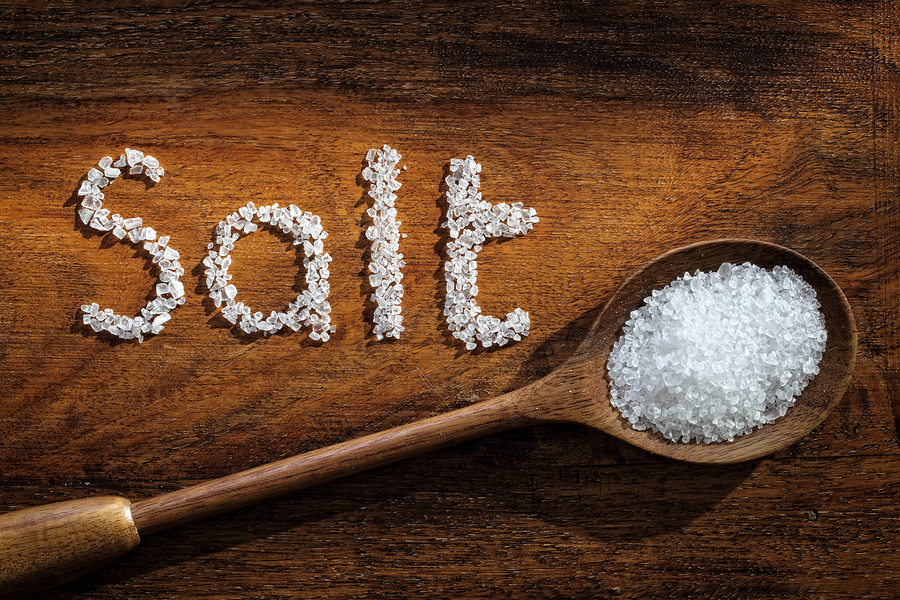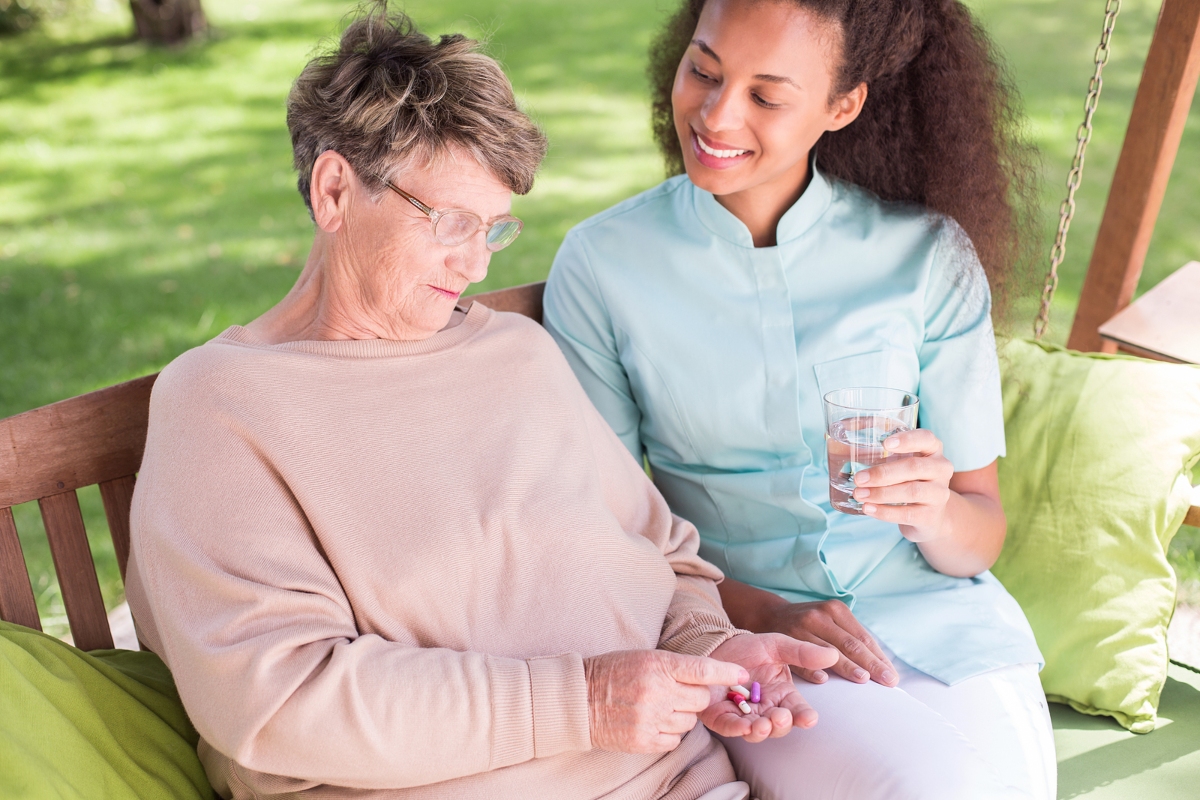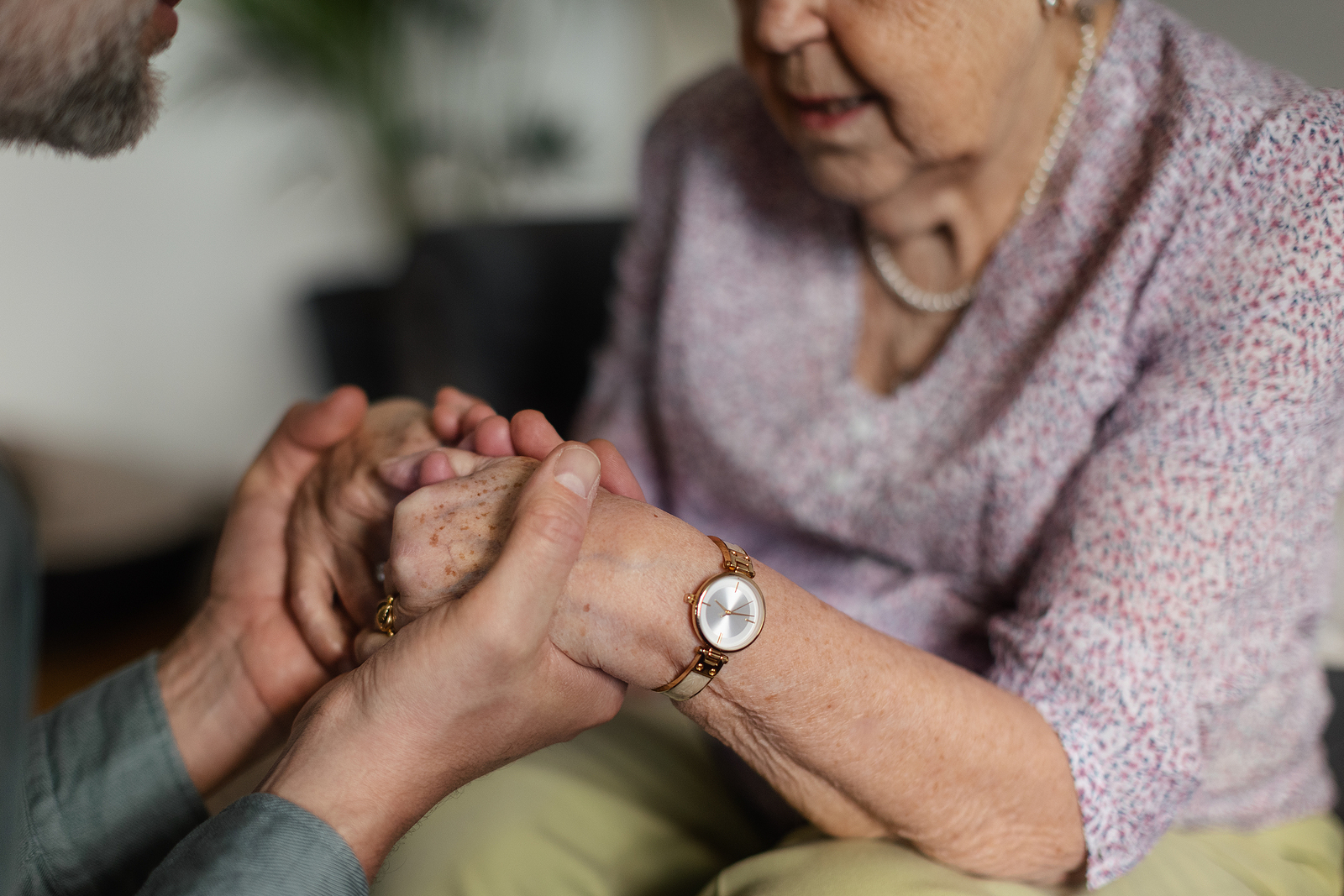Helping Seniors Adapt to a Low Salt Diet

Has your elderly loved one recently been diagnosed with hypertension or high blood pressure? While the doctor might have prescribed medicine for your loved one to take to reduce her blood pressure, often the doctor will also recommend someone with high blood pressure to make some dietary changes, especially if their current diet is causing their body harm.
With hypertension, one of the most harmful elements in a diet is sodium. If your loved one has a sodium-rich diet, it might be time to change that. The important thing to consider when thinking about how much sodium is consumed is to remember that shaking the salt shaker on food probably isn’t where the majority of the salt in your loved one’s diet is coming from. Most sodium comes from frozen meals, packaged sauces and seasonings, and processed meats.
Learning to implement a new menu can be a lot of work for some seniors. Your loved one might only know how to cook certain meals or may not know how to prepare fresh fruits, vegetables, and meat for meals. If she lives alone, this is an area where a 24-hour home care team can step in and help ensure that what she is eating meets the guidelines that the doctor recommends. A 24-hour home care team is trained to follow the specific dietary requirements of their clients, making sure the food is prepared not only how the client likes it but also meets the guidelines.
If your loved one doesn’t have a 24-hour home care team, she might need some help from family and friends to help her get used to the new diet. One thing that many elderly loved ones need help with is learning how to read the ingredient labels on food items so that when they are shopping, they can make smart decisions on which foods are better to purchase and meet the guidelines. Sodium can hide in many foods that you or your loved one have never thought of like salad dressings, ketchup, and cereal. That’s because sodium doesn’t always equate to salty. So, just relying on the saltiness of a food is not always enough to know if a food is high in sodium or not.
Frozen, convenient foods are also often high in sodium. Your loved one might feel like she is making a healthy choice with a bag full of frozen chicken breasts but if they are marinated or soaked in a sodium-heavy liquid, they may not be the best choice. The same can be said about frozen vegetables. At first glance, they may seem like a good solution, but without reading the food label, your loved one might be getting a lot of unwanted sodium in her diet.
Fresh is always best when it comes to meat, vegetables, and fruit. Helping your loved one know how to purchase and prepare them will aid in her reaching her dietary goals. If it seems a bit overwhelming, start with one area and gradually make overall changes until your loved one is eating a diet that will support her blood pressure health.
If you are struggling to be there for your senior when they are making dietary changes, 24-hour home care can be there. Overnight care benefits seniors in many ways, one of which is with healthy meal preparation, including reduced salt diets.
Subscribe
Date: September 15, 2023


